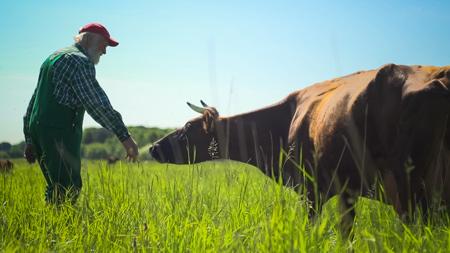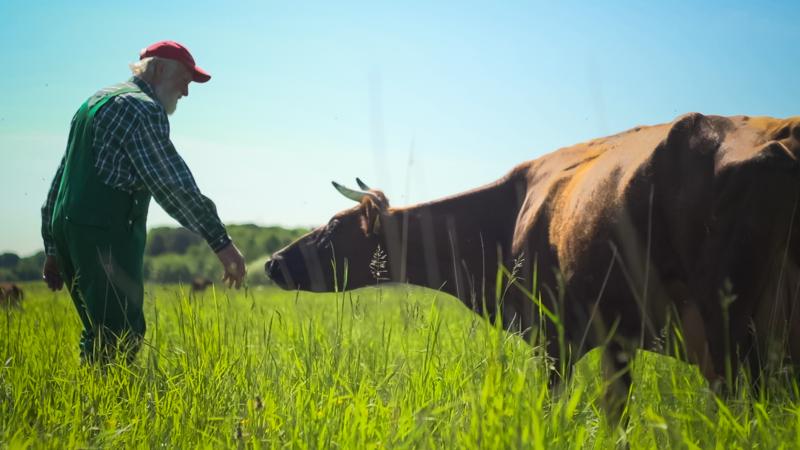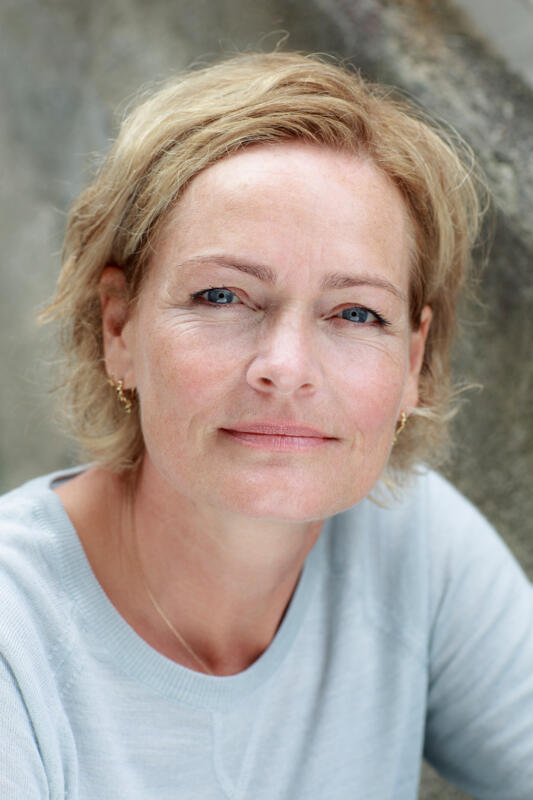When Phie Ambo was a tot she went to a Marxist kindergarten. Not that her parents were particularly leftist, but this was the 1970s, and since there were very few kindergarten spots open in their area, they took the first one they were assigned.
"I remember they had these Marxist structures in my kindergarten that were impossible to live in. There was a sandbox patrol of kids who would make the rounds and make sure the other kids behaved the way they should – that the sandbox stuff was kept inside the sandbox, that kind of thing. I did not do well with that at all," Ambo says.
Ever since, the award-winning director of documentaries like Free the Mind and Mechanical Love has had a hard time with authority. In general, Ambo is not very comfortable in surroundings that value efficiency and structure over contemplation and reflection.
Ambo puts these principles up for debate in Good Things Await through her protagonist Niels Stokholm and his unique biodynamic farm Thorshøjgaard, located an hour's drive north of Copenhagen.
It all began with a farm field trip that Ambo's daughter was going on with her Rudolf Steiner kindergarten. The filmmaker went along with her camera to photograph the kids and the farm animals. Ambo had heard that Stokholm's produce was praised by gourmet restaurants like Noma, that his produce was top grade. But she didn't know anything about the farm or how it was operated.
"As soon as we pulled into the driveway, I could tell this was where I needed to be," Ambo says. "And I could tell there was a film in Niels."
Contemplating a Snail
To understand life at Thorshøjgaard and its appeal to Ambo, you have to understand what kind of farmer Stokholm is. He runs the farm according to the principles of the Austrian philosopher Rudolf Steiner that are the basis for biodynamics. Instead of considering weeds an evil, Stokholm thinks of them as part of the farm's circulatory system, where everything has a function.
There is no soy feed here, no pesticides or industrial production. The animals are on pasture all year round, including when the ground is covered in thick snow. Stokholm's cattle, an old dairy breed known as Danish Red, are so nimble they look like deer more than the heavy, industrial swollen-uddered cows you usually see in the Danish countryside. This resonates with chefs like Noma's René Redzepi, who regularly buys beef from Thorshøjgaard, because, as Ambo puts it, "It simply tastes exceptionally well."
"I needed to get out of the whole efficiency mindset that we're quickly lulled into in our modern lives," the filmmaker says.
"I needed a chance to be somewhere where you can spend an hour contemplating a snail moving along a leaf, the kind of thing that I think is good and important to spend time on but that we usually don't have time for in the day to day," she says.
"Niels is an extreme contrast to the rest of society, which is all about efficiency and quantity instead of quality. He is 100 percent uncompromising. If he can sense that his cows need milking in the middle of the night, that's what he does. He follows the rhythm he finds in the farm. He is an organism on the farm interacting with all the other elements. Nothing is subjected to his rhythm – he slips into the animals' rhythm."
Positive Alternatives Do Exist
Still, it was more than her personal need to spend time at Thorshøjgaard that compelled Ambo to make the film. Looking at the 40-year-old documentarian's back catalogue, her anti-authoritarian worldview shows through everywhere. Free the Mind looks at how meditation can help soldiers with PTSD and children with ADHD-symptoms. "The Bailiff" is a glimpse into a system that puts debt-ridden people out on the street, while "Mechanical Love" is about robots being used as substitutes for human relationships.
The impression is of a filmmaker looking for the good life, who wants us all to stop and ask ourselves if the world really is organised in the best possible way. No exception, "Good Things Await" demonstrates that alternatives do exist to how farming is done today and to how society is organised overall.
"I'm always looking to push a positive development in society," Ambo says. "When I arrived at the farm, I saw a real alternative. For me, it's incredibly inspiring to see someone actually doing something instead of just talking about it. We live in an age where the industrial and capitalist worldview is collapsing left and right in some pretty hardcore ways. I think the way Niels and his wife, Rita, live presents a positive alternative, even if it is extreme simple living.”
Ambo is surprised to hear trend researchers dismiss the whole issue of sustainability as a passing trend.
"What are they talking about? We have a global account that doesn't add up. That we use more resources than we have is above discussion. The planetary store is all sold out! For the first time in human history we face these climate and resource changes caused by our excessive consumption. I can't see how anyone could call the solution to that a passing trend."
"Good Things Await", selected for The Female Gaze programme at IDFA, is produced by Malene Flindt Pedersen for Danish Documentary Production.




